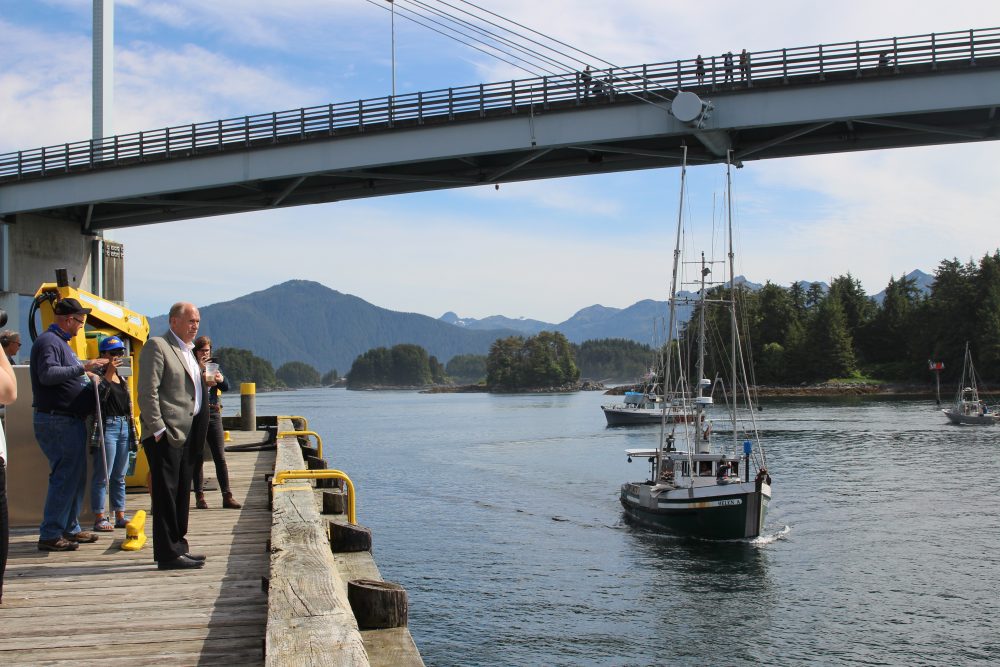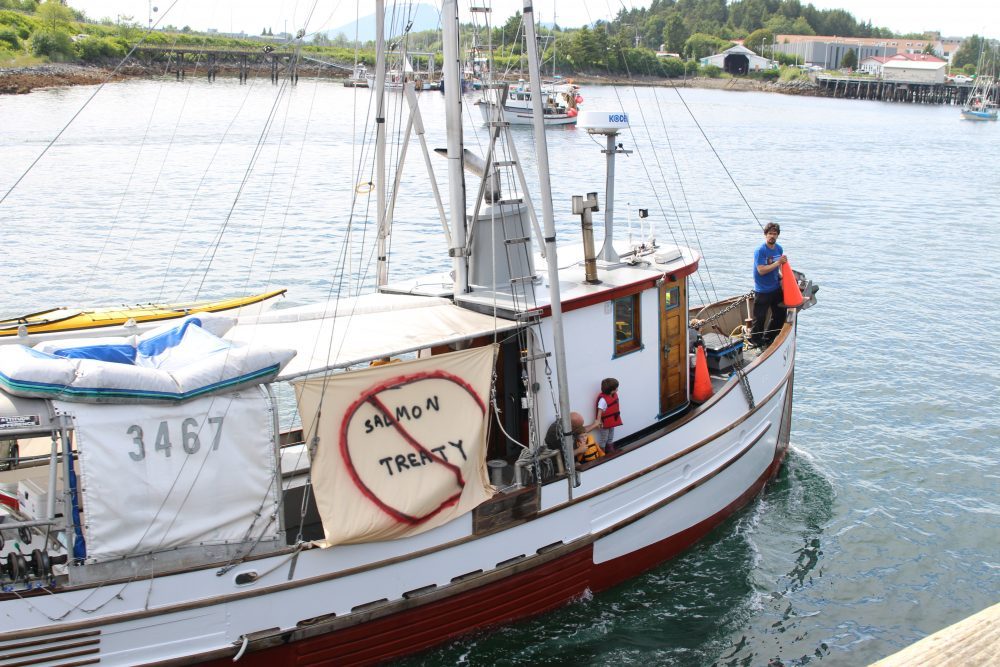
Sitka’s salmon fishermen are worried about the state’s strategy for renegotiating the Pacific Salmon Treaty. That’s the document between the United States and Canada that allocates the king salmon harvest across borders and expires at the end of the year. The fleet took to the seas yesterday to send Governor Bill Walker a strong message not to sign “a bad treaty.”
Governor Bill Walker’s agenda in Sitka was pretty straightforward: meet with the mayor, speak at a conference, hold a campaign rally. He expected that. What he wasn’t expecting, was two dozen fishing vessels are parading along Sitka Sound on the blazing, sunny day.
They were blaring boat horns and shooting off fireworks. Perched on the bow, troller Cavan Pfeiffer had an orange traffic cone against his mouth, a makeshift megaphone.
“Governor Walker! We need you! Stand up,” Pfeiffer yelled.
Salmon fisherman are worried the Governor will agree to a Pacific Salmon Treaty that deepens cuts to Alaska’s king salmon fishery.
“It’s a tough time for trollers,” Eric Jordan said, standing with a group of conservationists and fisherman to greet the Governor’s vehicle. “There are things going on out here in the ocean. I fished all morning, got up at 3 a.m. in the morning and was out there in the fog and stuff for one fish.”

King salmon populations are crashing across Alaska and no one knows why for sure. In response, the Board of Fish passed a conservation plan for Southeast in January and limited fishing at certain rivers. While Jordan supports those measures, he said he and other trollers cannot afford to lose more fish.
“We’re willing to make the sacrifices written into the treaty. But we’re not willing to just arbitrarily have our share reduced,” Jordan said.
Alaska’s negotiation team does not consider a reduction arbitrary. ADF&G Deputy Commissioner Charlie Swanton told trollers and processors at a Chinook Symposium in Sitka last month that the proposed cuts were carefully negotiated with Canada, as part of a strategy to protect endangered stocks in Washington state’s Puget Sound — and to avert a potential federal takeover of the fishery under the Endangered Species Act.
While Sitka trollers are on board with taking their share of cuts to protect fish runs in this region, they’re tired of taking the fall for problems elsewhere. The Sitka Conservation Society’s Heather Bauscher said the state needs to prioritize Alaskan interests. “Where are the positives? What are the things that are being done to support this region?,” she asked.
After arriving by car, Walker took in the whole scene. He waved to the vessels, listening to the words being shouted from the decks. He stood in the street and spoke with the group assembled.
“We’re going to try to get the best deal that’s available,” Walker told the group. “I’m known for doing bold things and so I’m not a very good follower of this is the way we’ve done it in the past necessarily.”
Walker did not elaborate on what that meant. He said he’s keeping an open mind on the Pacific Salmon Treaty as treaty negotiations are still ongoing.
“Well, I have nothing to sign at this point. What I like to do before I make any decisions on anything is I like to hear from all different sides of it. So, that’s the beauty of being in Sitka today and the graciousness of those who have come out to express their opinion. I celebrate that,” Walker said.




